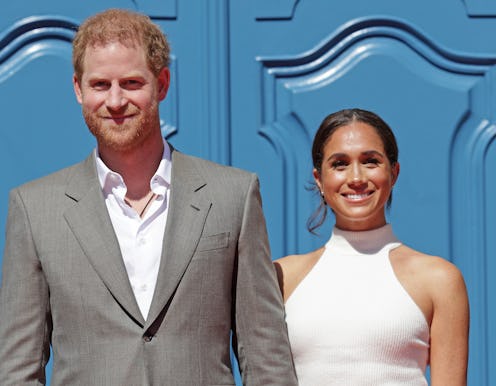Royals
Meghan Markle Is Over The Narrative That Prince Harry “Chose” Her
“I chose him, too.”

The debut of Meghan, the Duchess of Sussex’s much-anticipated Spotify podcast, Archetypes, has brought with it a rare insight into Meghan’s personal life. Speaking in the Sept. 6 episode of the audio series, titled “The Stigma of the Singleton,” Meghan Markle discussed the “joys, challenges, and stigmas” of being a single woman with The Office actor Mindy Kaling. She also spoke about the frustration she’s felt about the narrative that Prince Harry “chose” her as a wife.
Reflecting on the reaction to her 2017 engagement to the Duke of Sussex, Markle recalled, “everyone was just like ‘oh, my God, you’re so lucky, he chose you.’ At a certain point, after you hear it a million times over, you’re like ‘well, I chose him, too.’”
The Duchess continued: “It is gendered and it’s archetyped and stereotyped that you’re so lucky, and it just feeds into this idea that you’re waiting for someone to tell you that you’re good enough, as opposed to knowing that you’re good enough on your own.”
Markle went on to say that she “thankfully” has a partner who was “countering that narrative for me and going: ‘They’ve got it all wrong. I’m the lucky one because you chose me.’”
Speaking on her Archetypes podcast, the Duchess also looked back on her time studying at a “feminist all-girls school,” which taught students a “traditional” approach to marriage. She continued, “First comes love. Then comes marriage.”
In another recent episode of the audio series, entitled “The Duality of Diva,” Markle spoke with Grammy award-winner Mariah Carey about their experiences of living as mixed-race women, prompting the Duchess to reveal that she was never treated as a “Black woman” until she married Prince Harry in 2018.
“If there’s any time in my life that it’s been more focused on my race, it’s only once I started dating my husband,” she explained. “Then I started to understand what it was like to be treated like a Black woman. Because up until then, I had been treated like a mixed woman.”